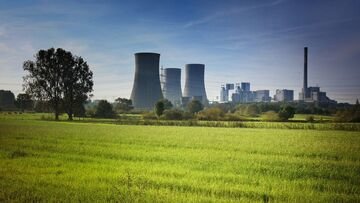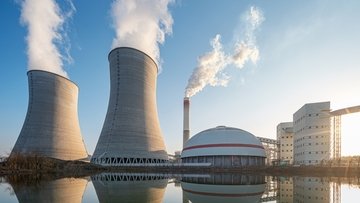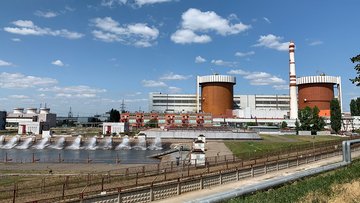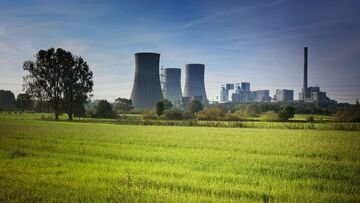Nuclear power is the use of nuclear reactions to produce electricity. Nuclear power can be obtained from nuclear fission, nuclear decay and nuclear fusion reactions. Presently, the vast majority of electricity from nuclear power is produced by nuclear fission of uranium and plutonium in nuclear power plants. Nuclear decay processes are used in niche applications such as radioisotope thermoelectric generators in some space probes such as Voyager 2. Generating electricity from fusion power remains the focus of international research.
Most nuclear power plants use thermal reactors with enriched uranium in a once-through fuel cycle. Fuel is removed when the percentage of neutron absorbing atoms becomes so large that a chain reaction can no longer be sustained, typically three years. It is then cooled for several years in on-site spent fuel pools before being transferred to long term storage. The spent fuel, though low in volume, is high-level radioactive waste. While its radioactivity decreases exponentially it must be isolated from the biosphere for hundreds of thousands of years, though newer technologies (like fast reactors) have the potential to reduce this significantly. Because the spent fuel is still mostly fissionable material, some countries (e.g. France and Russia) reprocess their spent fuel by extracting fissile and fertile elements for fabrication in new fuel, although this process is more expensive than producing new fuel from mined uranium. All reactors breed some plutonium-239, which is found in the spent fuel, and because Pu-239 is the preferred material for nuclear weapons, reprocessing is seen as a weapon proliferation risk.







